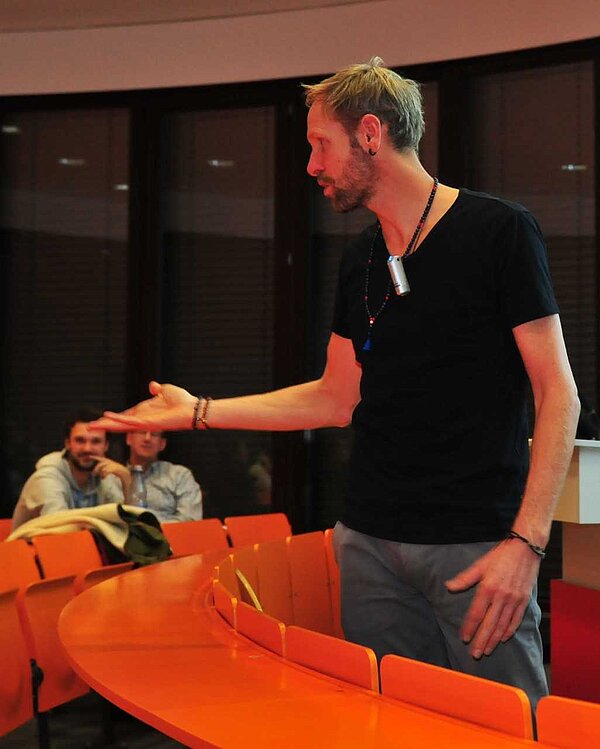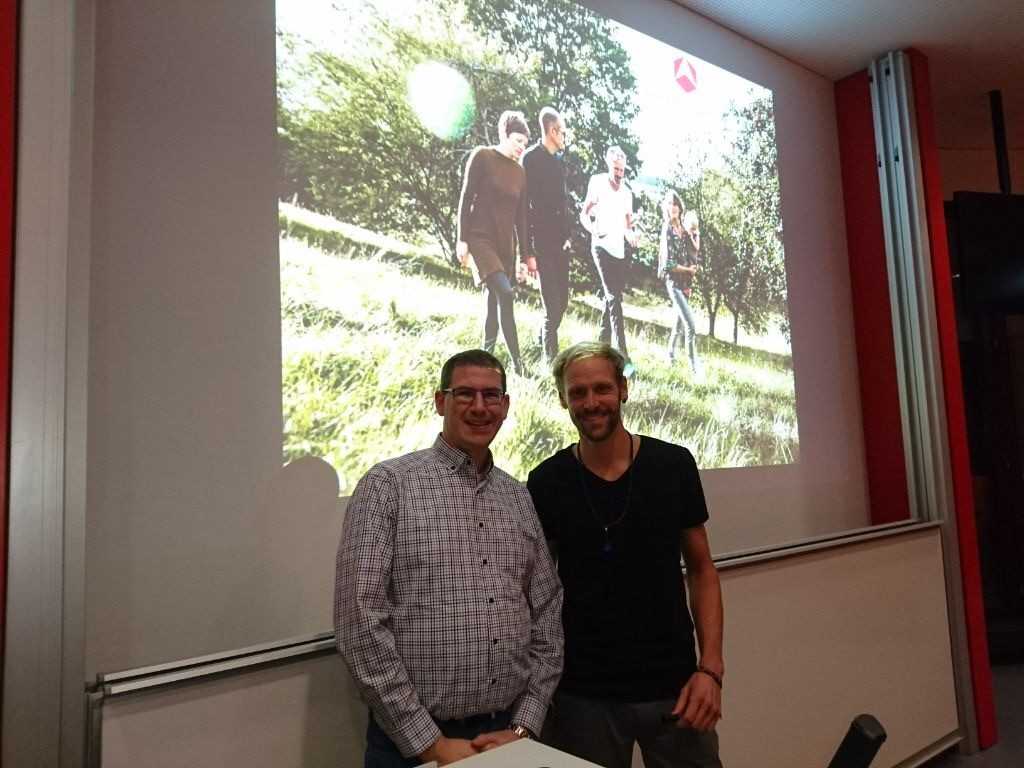"Do you know what you're doing?"

"Do you know what you're doing?" - The illusion of sustainable future design
Lars Groskopf from Siebenbach|Corporate Culture was a speaker at the third lecture series Resource Efficiency and Sustainability in the winter semester 2018/19. Lars Groskopf approached the question "Do you actually know what you are doing?" It quickly became clear that this lecture series - an impulse lecture - would be different, so Mr. Groskopf continually entered into a dialogue with the audience by asking questions.
A person by profession - that's how Lars Groskopf introduced himself to the audience. He and all of us can't be anything else. But do we do what we want and what we are meant to do, or do we ultimately do what our environment moves us to do? Our environment includes family, friends, colleagues, superiors and many others. In a certain way, we will always do what the "market" demands or expects of us in order to secure our existence. So there are only a few who dare to face the environment.
Using a simple drawing, Lars Groskopf illustrated that our innermost self is the most important point from which everything starts and in which everything that is necessary is available from the beginning. A reality - a projection - emerges around this point. If we take a point in the projection as our goal, we will not necessarily reach it, because between us and this goal comes a multitude of beliefs. These sentences like "That's not how you do it", "That's how we've always done it" or "What would my father say about it" distract us and we end up at another point. But to circumnavigate or even dissolve these cult clusters is difficult. Management levels in companies also shape the environment of their employees and are working to dissolve such clusters.
Even if cultural clusters may prevent us from reaching our goal, everyone has a certain goal to focus on. However, this focus of goals carries the risk of missing the beauty of it. We therefore need a change of perspective, because a goal is always only one component of the whole.
After this introduction Mr. Groskopf gave impulses for cultural work to the audience for discussion, which should serve to advance changes and developments.
"Everything begins with me." - I decide what I want to do, I also decide for a position in a company.
"There is only the moment." - Future decisions are a wish in the moment, things often go differently than planned and today I can only hope for tomorrow. Change is taking place, time is running constantly and the moment is the only thing there is. I can only imagine that tomorrow will be different than now. Circumstances and therefore also people change.
These impulses led to a lively discussion in the audience, in which very personal views were expressed and examples were presented, in which the environment tempts you to do something that you don't really want to do. Mr. Groskopf ended his lecture with the sentence: "Don't be how you want to be, but be". This was the end of a special lecture, which will surely remain in the listeners' minds for a long time.

